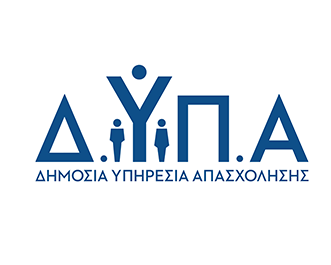“Active Labour Market Policies in Greece have an immediate and significant impact” stated DYPA Governor in an OECD event
“The impact of Active Labour Market Policies in Greece is both direct and significant”, stated DYPA Governor in a recent OECD event
The event "Evaluating labour market policies through the use of linked administrative data", which was organised by the European Commission (EC) and the Organisation for Economic Cooperation and Development (OECD), was held earlier today in Paris, in the presence of Stefano Scarpetta, Head of the OECD Directorate of Employment, Labour Force and Social Affairs, Andriana Sukova, Deputy Director of the EC’s Directorate-General of Employment, Social Affairs and Inclusion, and Spiros Protopsaltis, Governor of the Greek Public Employment Service (DYPA).
The event aimed at presenting the conclusions and best practices of the relevant EC and OECD joint project in 6 EU countries, including Greece.
The discussion focused on the main findings and challenges identified through the relevant mutual learning and networking activities, as well as on specific conclusions drawn from the main results, placing particular emphasis on the effectiveness of the ALMPs under evaluation.
DYPA’s Governor made particular reference to the ALMP beneficiaries’ enhanced employability and income, as clearly identified by the study, and the utilisation of the project findings with a view to designing even more effective policies for citizens.
According to the OECD report on Greece, which evaluated 3 training programmes implemented in 2017-2020 and 17 wage subsidy programmes implemented in 2017-2021, the programmes’ impact on the beneficiaries’ employability and income was particularly significant.
More specifically, regarding wage subsidy programmes for unemployed persons:
- 12 months after entering the programme, the participants’ employment rate was 59% higher than that of non-participants (86.4% vs. 27.7%).
- 24 months after entering the programme, the participants’ employment rate was 33% higher than that of non-participants (61.4% vs 28.6%).
- 36 months after entering the programme, participants were almost twice as likely to be employed in comparison to non-participants, as their employment rate was 59%, as compared to 32% of the control group – a difference of 27%.
Regarding training programmes:
- 12 months after entering the programme, the participants’ employment probability is 7% higher than that of non-participants (18% vs. 11%).
- 24 months after entering the programme, the participants’ employment probability is 9% higher than that of non-participants (24% vs. 15%).
- Furthermore, the impact of training on cumulative earnings builds consistently over time, and in the three-years following the start of training, participants earned a cumulative total of €1,500 (in 2015 prices) more than similar jobseekers who did not participate in training.
The report also makes specific reference to the ongoing reforms in DYPA’s work regarding the enhancement of Greek LMPs for jobseekers and employers.
DYPA’s Governor, Spiros Protopsaltis, stated: "For the very first time, ALMPs in our country have been systematically evaluated. The evaluation results justify our decision to give priority to wage subsidies and vocational training. With a record number of 200,000 jobs and 300,000 trainees, DYPA invests in measures that lead to employment. We will continue doing so, in an even more intensive, targeted, and effective manner."
Click here for the Press Release























